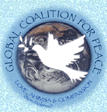 |
 |
 |
A NEW ECONOMIC PARADIGM FOR A CULTURE OF PEACE
 |
 |
 |
 |
 |
 |
|
Democracy, ecology, and cultural vitality depend on a new economic vision
for the world. By almost any measure, multinational corporations have
failed spectacularly on their promise of fostering global democracy and
prosperity. That's why people all across the planet - from villagers in
India to students in North America - are stepping up to challenge the
abuses of big business. While corporate power is deeply entrenched, this
new economic democracy movement is fueled by a fresh set of strategies
about how people can regain power. - The Editors I was recently asked
to give a talk in Melbourne, Australia, to a group of businesspeople to
make a case for sustainable development. I watched them gorge on roast
chicken and chocolate mousse and chardonnay and coffee, and by the time
I got up to speak I didn't think they wanted what I was going to serve.
They were full. Instead of answering, I posed the opposite question: I
asked them what the business case is for worldwide endemic poverty, for
double-glazing the planet with greenhouse gases. I asked them how it came
to pass that we created an economic system that tells us it's cheaper
to destroy the earth than to take care of it. Why do we get economic signals
that are antithetical to our deeply held values and common sense? Why
do we separate the benefits of industrial development to some from the
cost to others? Why do our deepest aspirations for goodness, for inclusion
and generosity not cumulate into a peaceful and equitable society? In
short, I asked them why we live in two worlds instead of one.
All publicly held corporations live a lie. They believe that we reside
in a world where capital has the right to grow and that that right is
a higher right than the rights of people to their culture and what we
hold in common. There is something incalculably wrong with this view.
You can't get to sustainability from an economic model that strives first
and foremost to increase the amount of money large corporations have.
You can't get there if you're destroying the world's local economies.
You can't get there if you are McDonald's and spend $2 billion a year
to get children to eat your junk food. We cannot correct environmental
problems if we don't correct the assumptions that cause them. Most of
the world's economy and the behavior of the world's governments are under
the control of corporations. Corporations are striving to increase their
control; at the same time, the world is increasingly out of control. There
is a direct connection.
This new weight of corporate colonization is having disastrous results.
Bechtel in San Francisco, Suez, and Vivendi of France want to privatize
water the world over. Novartis, DuPont, Monsanto, and Bayer-Aventis want
to control 90 percent of the germ plasm of 90 percent of the caloric food
intake of the world. These are companies that make toxic aniline dyes,
animal hormones, artificial sweeteners, explosives, and pesticides. Ted
Turner said that in the end there will only be two media companies in
the world, and he wants to have a stake in one of them. Rupert Murdoch
agrees and wants to be the other. McDonald's opens up 2,800 restaurants
a year, and even the U.S. government has said that the doubling of childhood
obesity and alarming growth in diabetes in the past 20 years is due to
fast food. Right now one out of every five meals in the United States
is fast food, and they want that to be the case everywhere in the world.
Coke says that it has achieved 10 percent of the total liquid intake of
the world, and its goal is to go to 20 percent. Or is it 30 percent? These
are absurd and devastating goals for corporations.
I do not believe that any Fortune 500 company can be sustainable, but
there are definitely things that transnational corporations can do to
help society and the environment. They can:
- Get out of our schools.
- Get out of our stomachs.
- Get out of our government.
- Get out of our rivers, oceans, and forests.
- Get out of our skies and soils.
- Get out of our seeds and the human genome.
Until corporations understand that they are spearheading a kind of commercial fascism, they're going to find that resistance will grow. It's fascist in the sense that it is an attempt to create a meta-order for people, with the assumption that a small group of people know better than the larger group; therefore, the large group does not have to be consulted. Whether it was Marxist Leninism or Mussolini, fascism has always been informed by the vanity that a few know more than the many-·for their "own good." What is the World Trade Organization trying to bring to the table? Rules, order. What is the Free Trade Area of the Americas treaty trying to do? Rules, order. But whose rules? Whose order? What process? In The Lexus and the Olive Tree, Tom Friedman, an advocate of globalization, wrote: "The hidden hand of the market will never work without a hidden fist. McDonald's cannot flourish without McDonnell Douglas.... And the hidden fist that keeps the world safe for Silicon Valley's technologies to flourish is called the U.S. Army, Air Force, Navy, and Marine Corps."
Trade is great. Trade is civilizing. Trade is not the issue. The question
is who sets the rules and who enforces them. What will the shape of the
relationships be among nations, regions, peoples, companies, markets,
and the commons, which support all life on earth?
It will come down to some very simple questions in the end. Do we want
democracy and self-determination, or do we want oligarchic institutions?
Do we want a world of uniformity where the road from every airport to
every city center looks like every strip mall in the world? Do we want
another world than the one envisioned by Monsanto, Wal-Mart, and Disney?
Do we want our 9-year-old girls being lured by dolls with happy meals
into McDonald's to end up with Type II diabetes? Or do we want strong
regional and native cultures proud of their heritage, devoted to their
land, committed to true development and the future of their children?
In short, do we want a world structured by rich, mostly white men, or
a world that is an expression of the fabulous qualities of all human beings?
The corporatization of the world is creating a loss of diversity. The
degree to which the corporate world order tries to enforce a one-size-fits
- all formula to the planet's media, culture, agriculture, and dietary
habits is going to be seen in hindsight as just as much of a criminal
act as the deracination and slaughter of the indigenous peoples of the
Americas or the enslavement of Africans. We look back at those things
now and feel ashamed. We will look back at what we're doing right now,
and we'll see it for what it is: a violation of humanity. The very same
companies that invoke sustainability have business models that destroy
people and life. We will, I predict, in our lifetime, convict corporations
of crimes against humanity.
A Nigerian tribal chief once said. "If you don't share your wealth
with us, we will share our poverty with you." It is less expensive
to share our wealth than to continue this extravagantly self-centered
system we call corporate capitalism. This is not the most economical system.
The idea that sustainability costs more is upside down and backwards.
It costs less to maintain the earth in real time.
A world where 20 percent of its people get less than 1 percent of its
resources, where nearly a billion go to bed hungry, a world tom by strife,
riddled by greed, controlled by small, petty men bankrolled by large transnational
corporations is not cheap.
We know how to transform this world to reduce our impact on nature by
severalfold, how to provide meaningful, dignified living-wage jobs for
all who seek them, and how to feed, clothe, and house every person on
earth. What we don't know is how to remove those in power, those whose
ignorance of biology is matched only by their indifference to human suffering.
This is a political issue. It is not an ecological problem. The way to
save this earth is to focus on its people, and particularly those people
who pay the highest price: women, children, communities of color, the
localized poor. The sustainability movement-without forsaking its understanding
of living systems, resources, conservation, and biology-must move from
a resource flow model of saving the earth to a model based on human rights,
the rights to food, the rights to livelihood, the rights to culture, community,
and self-sufficiency. The environmental movement must become a civil rights
movement, a human rights movement. Without that, it will simply be a failed
white man's movement from the North.
Sustainability has to be about improving the quality of life of all people
on earth and honoring all forms of life.
The world is waiting for answers, and right now the main providers are
fundamentalisms, whether they be political, religious, or economic. But
we have to rebel against that which oppresses our imagination and our
ability to dream to realize that not only is another world possible, but
that we have the means at hand here and now to create it. Is it too late?
Yes, it's late, but people never change when they are comfortable. The
world is anxious. Author Margaret Drabble wrote, "When nothing is
sure, everything is possible." We have nothing to fear. The worst
is happening right now. Helen Keller once said, "This is a time for
a loud voice, open speech, and fearless thinking. I rejoice that I live
in such a splendidly disturbing time."
I was recently asked by a journalist, "Aren't you just dreaming?"
I replied, "Absolutely I'm dreaming; somebody's got to dream in America."
The dreams of a livable future aren't coming from George Bush and Dick
Cheney, and it is our right to dream. It is something we owe our children's
children. A dream is a gift of the future, and the future is begging.
I dream of having a U.N. arms control and inspection team coming to the
United States to remove assault weapons from the hands of all National
Rifle Association members, I dream of another U.N. team shutting down
the 15,000 chemical plants in this country that are essentially biological
weapons waiting to happen. I dream of my country living up to its legal
treaty commitments and getting rid of weapons of mass destruction. I dream
of a United States that actually has an energy plan; a climate plan, not
a midterm election plan; a water plan to get rid of the pollutants in
our riparian corridors and streams; a biodiversity plan; a plan to eliminate
poverty and illiteracy; a plan that ensures that no child here or anywhere
goes to bed hungry.
I once gave a talk at an elementary school to third graders, and I told
them that there are a billion people in the world who want to work and
can't work. A girl raised her hand and said. "Is all the work done?"
I dream of getting my government back, a country of, by, and for the people.
I dream of a country that is big enough to say it is wrong; that can be
remorseful and say it's sorry for the suffering it's caused First Peoples,
African Americans, Hispanic Americans, Asian Americans, and people in
other lands that we have wronged; a country big and generous enough to
build new schools in inner cities and act with decency in the world.
To quote Uruguayan novelist Eduardo Galeano, "I dream about a time
when the world will no longer be at war against the poor but against poverty;
when the weapons industry will have no choice but to declare bankruptcy;
when nobody will die of hunger, and the street children will not be treated
as if they were trash because there will be no street children, because
a black woman will be-come president of Brazil and another black woman
president of the United States and an Indian woman president of Guatemala."
These dreams are pipe dreams unless we act politically. As David Orr says,
"We have great ideas; the right wing does politics. We are cozy in
our niches; they are in power. We are titillated about being right; they
are busy being in control." I dream that we will become a political
movement, not simply one called by the name of a color, but by the name
of an ideal. What shall we call it?
Let's not spend so much time on the big villains. It is not the Ken Lays
or George Bushes we should be demonizing. We need to honor the saints
in our midst, not the fools, the small heroes, not the big louts. Arundhati
Roy writes that "we have to support our small heroes. (Of these we
have many. Many.) We have to right specific wars in specific ways, who
knows, perhaps that's what the 21st century has in store for us. The dismantling
of the Big. Big bombs, big dams, big ideologies, big contradictions, big
countries, big wars, big heroes, big mistakes. Perhaps it will be the
Century of the Small. Perhaps right now, this very minute, there's a small
god up in heaven readying herself for us."
The Sufi poet Hafiz wrote, "Clever men place the world into cages,
but the wise woman who must duck under the moon throws keys to the rowdy
prisoners." Let's throw keys to the rowdy prisoners. Sustainability
is about freedom from tyranny, from empire, from corporate rule, the freedom
to honor life. Let's create, in Janine Benyus' memorable phrase, "a
world conducive to life."
Paul Hawken is an author, entrepreneur, and activist. He is the author of Growing a Business, The Ecology of Commerce, and Natural Capitalism. This essay was adapted from a speech delivered at the Bioneers conference in October 2002.